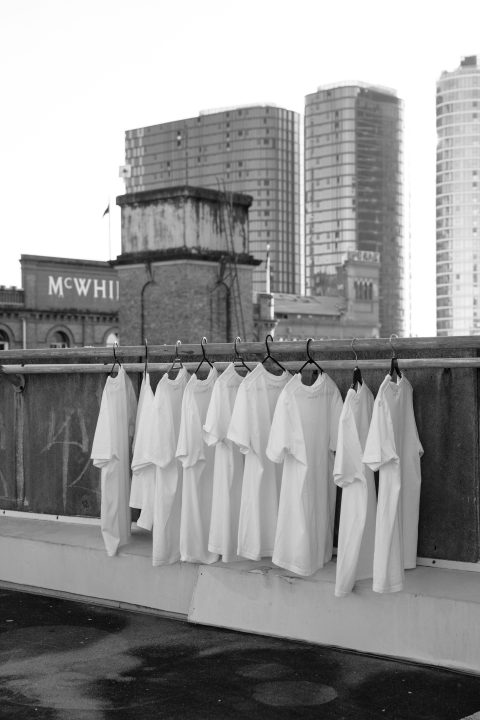KEYLA HOLMES
campus editor
keyla.holmes@my.tccd.edu
I understand if Brandy Melville shoppers feel as if they just can’t live without their cotton baby tees but please seriously consider the information presented in the documentary, “Brandy Hellville & the Cult of Fast Fashion.”
I don’t tend to shop at the popular clothing store, but I do occasionally buy tops and other accessories. My friends and I often touch the fabric in disbelief because of how soft it feels. “This is such good quality,” we agree.
According to the documentary, the luxurious feel of the clothes is one of many illusions about the brand. Unfortunately, I can’t say I was too surprised to learn about yet another problematic company. Though what I wasn’t ready for were the comments made by young women on TikTok.
Content creators set up their phones to summarize the information laid out in the film and give their takes. I’d watch their videos and head to the comment section. I’d scroll and scroll, but there just seemed to be this overall attitude of apathy.
After repeating this process for multiple videos posted, I realized I felt a bit disturbed. It was disheartening to see so many people agree to not care about something important in one place. I can’t say that I don’t contribute to the issue of fast fashion, because I do. I shop at clothing stores like PacSun, Cotton On and H&M. These stores are constantly updating their items based on what’s in, contributing to the social norm of tossing out clothes to buy the new trendy item.
I don’t think enough people consider where their clothes go after they decide to get rid of them. Whether it be throwing them out or hulling them in a donation box. Because the documentary explained the harm of the fast fashion business model and the role Brandy Melville plays in it, the nonchalant attitude expressed online was disappointingly the argument those involved in the film were making.
The experts and sources interviewed to talk about Fast Fashion recognized the fact that people buying into the harmful system don’t know or understand how they make an impact, or they simply don’t care. For those who regularly shop at Brandy Melville, there’s a similar sentiment. The store only offers clothes that are one-size fits all. The documentary explained that complaints have been made over the years since it opened in the U.S. in 2009, but the store’s CEO, Stephan Marsan has refused to make changes.
I’m not interested in shaming anyone for continuing to purchase clothes from the store, and I understand if a surge of people aren’t going to stop shopping at certain places because they’ve learned how the company contributes to fast fashion. I get it, and I honestly have no room to judge. I just hope people can remember to be empathetic and open to new ideas and ways of doing things.
You don’t have to decide to stop wearing your favorite tops from Brandy Melville, but I don’t think that means you can’t consider the points made in the documentary seriously. When a social issue is presented to you, I think the least you can do is listen and reflect on the points made. There’s something icky and off-putting about dismissing something that negatively impacts other people and joking about the fact that you just don’t care.
A lack of empathy for others as well as expressing a sentiment of, “It’s not like anything will change if I stop shopping there” is concerning and bleak. How will society incite social, environmental and political change if this is the attitude of young adults? Our attitude. We’ve got to do better.

